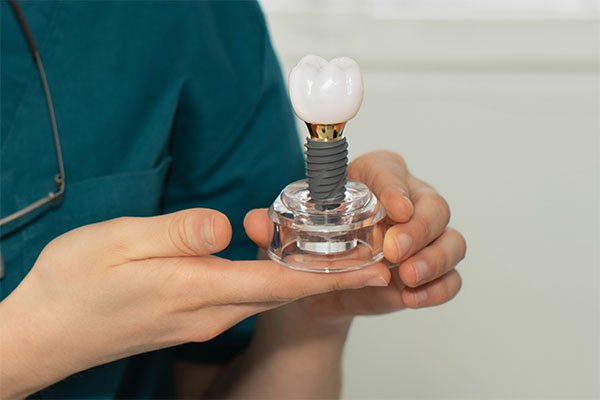Why Flossing Is Important for Preventive Dentistry

Proper flossing is one of the strategies in preventive dentistry. It is an essential part of oral care. Flossing can seem tedious, especially after a tiring day. Even so, setting it aside is not ideal. If you want to know the value of flossing in preventive dentistry, here are the details.
Removes trapped food particles
Stuck food particles result from chewing. Tiny and thin pieces remain in the mouth between teeth. A toothpick can help dislodge them, but there is always the risk of punctures and bleeding. The punctured areas become entry points for bacteria. This could cause an infection in the gums. Using dental floss is healthier as the tiny fibers grab the food particles instead of a pointed, wooden toothpick.
Prevents gum disease
Brushing teeth at least twice every day removes a large number of oral bacteria from between and the surfaces of teeth. In preventive dentistry, flossing helps reach the areas a toothbrush cannot. These are the areas where bacteria hide and reproduce. Flossing before bedtime prevents bacteria from staying long on the gum tissue. It eliminates the risk of these organisms entering the space between the gums and teeth. Periodontitis will start if this happens.
Keeps cavities at bay
Many cavities start between teeth. Toothbrush bristles cannot go between teeth. These gaps are still too tiny for even a single bristle. These in-between cavities move inward. The decay spreads once the neighboring tooth touches it.
That is why flossing must happen after brushing. Practicing preventive dentistry this way can help prevent bacteria from staying long enough to cause cavities. It is ideal to floss even before bed. Flossing will not let bacteria cause destruction.
Stops the buildup of plaque and tartar
Plaque is a sticky layer of bacteria on teeth. It tends to become harmful when in large quantities. This layer of biofilm hardens when the calcium deposits in the mouth increase. Plaque then becomes tartar, which adds to the worsening of tooth decay. Flossing every day will remove much of the plaque from the dental surfaces. This preventive dentistry strategy will prevent tartar formation along the gumline.
Protects dental restorations
Any dental restoration can last longer with the help of flossing. These restorations are valuable. Preventive dentistry can keep them in top condition. Bacteria can hide in the crevices and corners of dental restorations. Brushing will help keep them clean, but it will not be enough.
Flossing can get into thin gaps between teeth. The right type of dental floss can get in between the crevices of dental restorations. It could even work around artificial and natural tooth structures. This is an efficient way of keeping bacteria away from dental work. Preventive dentistry practices like this can prolong the life of dental restorations and natural teeth.
Preventive dentistry counts flossing as a vital component
Removing food particles and plaque is crucial for your oral health. Keeping them off limits the growth of bacteria in the mouth. It also keeps tartar from forming. Including flossing in your preventive dentistry rituals can improve your oral and general health.
Are you considering having preventive dentistry treatments in the Brooklyn area? Get more information at https://www.gardendentalartsny.com.
Check out what others are saying about our dental services on Yelp: Preventive Dentistry in Brooklyn, NY.
Recent Posts
Part of preventative dental care is not only regularly maintaining your dental routine at home but also visiting your dentist twice a year. During this visit, they will look at the condition of your teeth and gums. Things they look out for are any sensitivities, bleeding, soft spots, or areas where bacteria are more likely…
The most effective way to prevent tooth decay is with preventative dental care. Everyone wants to maintain a healthy white smile for a lifetime. Your smile is your first impression and a great way to show confidence. Keeping that smile can be very easy if you follow a few easy steps.Tooth decay causes gum disease,…
If you are looking to avoid having cavities, sensitive gums, or dental issues, your best bet is actively engaging in preventative dental care. Without regular dental cleanings, flossing, or rinses, you may be putting your dental hygiene at risk for things like gingivitis or even root canals. There are several healthy habits that you can…
Screening for oral cancer is an important part of preventative dental care. Unfortunately, oral cancer is a disease that is not often talked about. Very few events support oral cancer research and awareness, even though oral cancer takes one life every day in the United States. Many people do not seek or receive treatment until…


